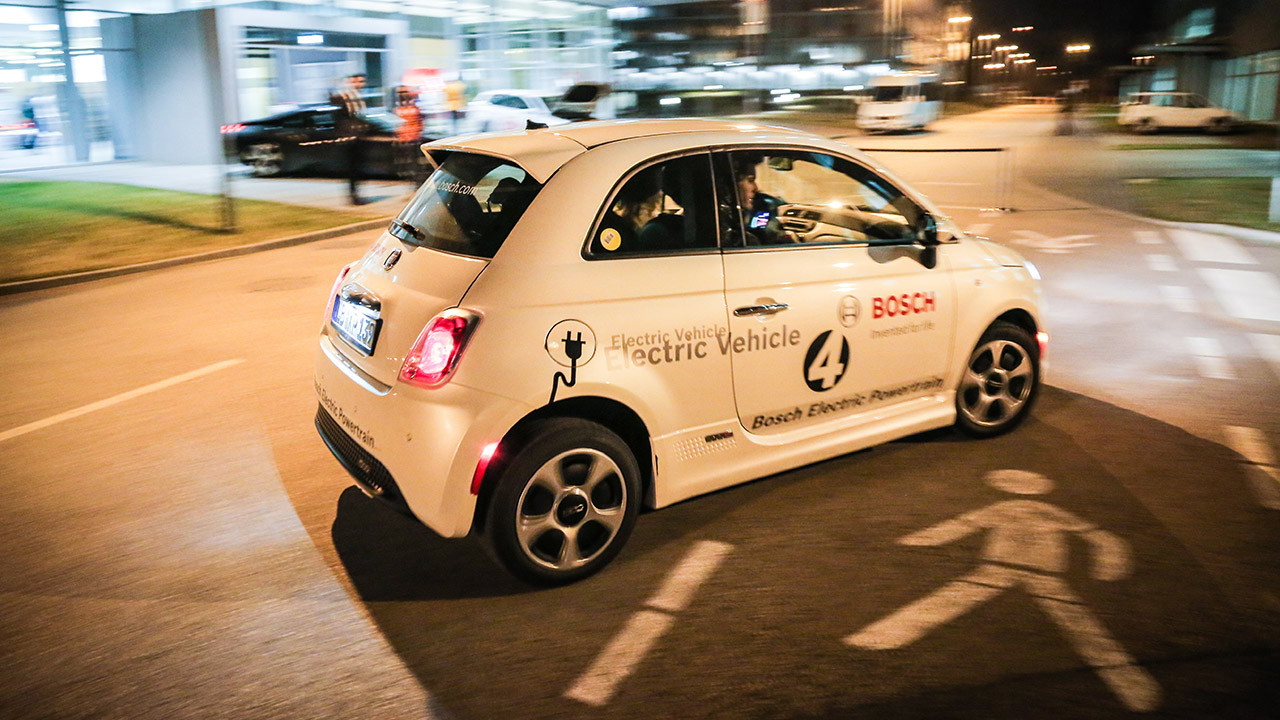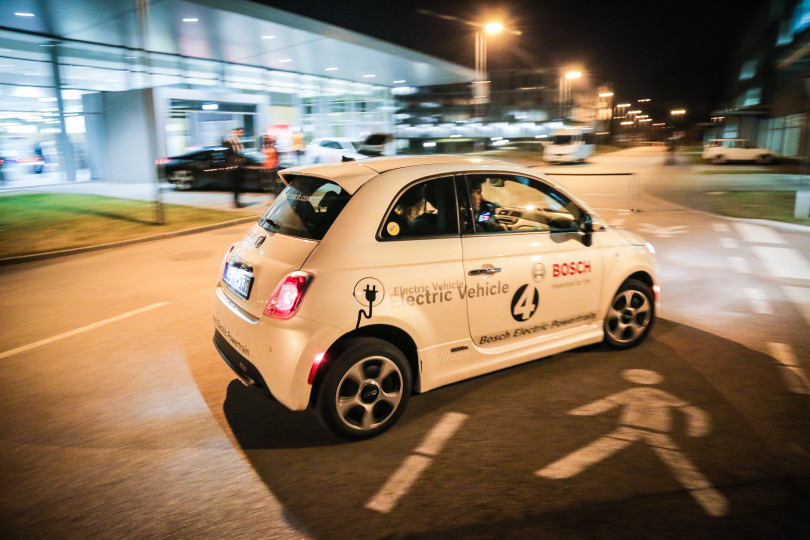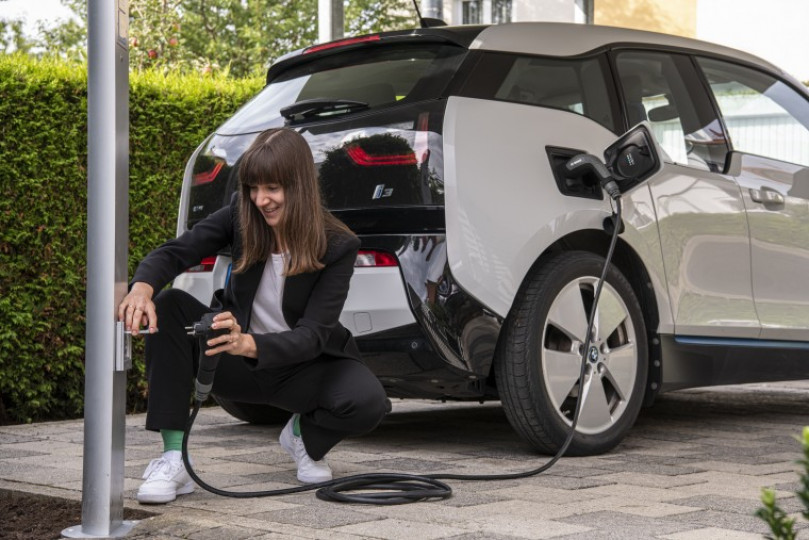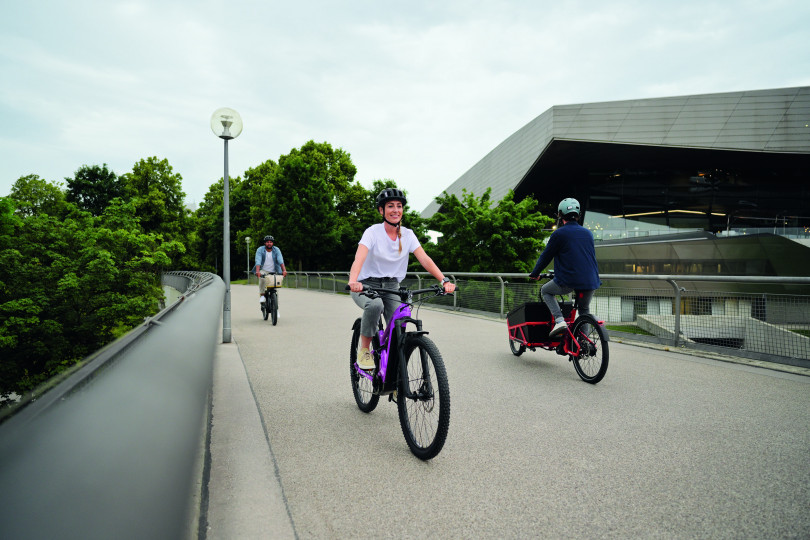Budapest – Cars are still the most important means of mobility in Hungary, around two-thirds of Hungarians cannot imagine their lives without it, according to a representative survey commissioned by Robert Bosch Kft. and conducted by the Medián Public Opinion and Market Research Institute. The survey examined car ownership habits and attitudes towards electromobility1.
Mobility is essential for everyday life
69 percent of households in Hungary own a private car. More than two thirds of respondents (70 percent) primarily use their car to get to their daily destinations, i.e. to work, kindergarten, school and shopping. A fifth of the population use their cars for work, while 11 percent of respondents said they primarily use their cars for leisure purposes. The survey also found that the more cars a household has, the more likely it is that the car is used primarily for work.
Around two thirds of car owners cannot imagine mobility without a car
61 percent of Hungarian motorists said they could not imagine mobility without a car. This is in line with the European experience: an earlier Bosch survey showed that 60 percent of European respondents could not do without the benefits of a car at all. According to the current survey, this is even more true for those who use their cars for work and for those who regularly use them to manage their daily lives.
Electromobility is increasingly attractive to young people
When people are considering which means of transport to choose, several factors are important. Environmentally friendly transport has become an important consideration for Hungarians (78 percent), ahead of speed or exposure to the weather, for example. However, the most important aspect is predictability (91 percent), followed by comfort and cost-effectiveness. If for some reason they cannot get into a car, 8 percent of car owners consider electric bike, electric scooter or some other electrically powered vehicle as a transport alternative. Electromobility is equally attractive to men and women, but is most appealing to people under 40, those living in Budapest and graduates.
“Electric drive will play an increasingly important role in sustainable mobility in the future, and electromobility is also one of the focus areas of Bosch's research, development and manufacturing activities in Hungary. It was important to investigate what exactly are the most important aspects of people's everyday mobility and how they relate to electromobility,” said Péter Gergen, Director of electromobility development at Bosch Engineering Center Budapest.
Bosch paves the way for electromobility
By 2035, it is expected that 60 percent of all newly registered vehicles worldwide will be electric cars. Bosch aims to make Budapest the R&D hub of East-Central Europe through the development of electric and hybrid powertrains and other technical solutions. In addition to its extensive R&D activities, Bosch in Hungary also manufactures electric drive systems and e-mobility components at its sites in Hatvan, Miskolc and Maklár.
1The survey was conducted by Medián using an omnibus survey, a telephone (CATI) method with a random sample of 1000 respondents. The survey is representative in terms of gender, age, educational attainment and place of residence in the age group 18 years and older.
Mónika Hack
+36 70 510 5516
Bosch has been present in Hungary since 1898 with its products. After its re-establishment as a regional trading company in 1991, Bosch has grown into one of Hungary’s largest foreign industrial employers with currently eight subsidiaries. In fiscal 2020 it had total net sales of 1,497 billion forints and consolidated sales to third parties on the Hungarian market of 238 billion forints. The Bosch Group in Hungary employs more than 15,500 associates (as of December 31, 2020). Figures of fiscal 2021 for the Bosch Group in Hungary will be available from May 26, 2022. In addition to its manufacturing, commercial and development business, Bosch has a network of sales and service operations that covers the entire country.
The Bosch Group is a leading global supplier of technology and services. It employs roughly 401,300 associates worldwide (as of December 31, 2021). According to preliminary figures, the company generated sales of 78.8 billion euros in 2021. Its operations are divided into four business sectors: Mobility Solutions, Industrial Technology, Consumer Goods, and Energy and Building Technology. As a leading IoT provider, Bosch offers innovative solutions for smart homes, Industry 4.0, and connected mobility. Bosch is pursuing a vision of mobility that is sustainable, safe, and exciting. It uses its expertise in sensor technology, software, and services, as well as its own IoT cloud, to offer its customers connected, cross-domain solutions from a single source. The Bosch Group’s strategic objective is to facilitate connected living with products and solutions that either contain artificial intelligence (AI) or have been developed or manufactured with its help. Bosch improves quality of life worldwide with products and services that are innovative and spark enthusiasm. In short, Bosch creates technology that is “Invented for life.” The Bosch Group comprises Robert Bosch GmbH and its roughly 440 subsidiary and regional companies in some 60 countries. Including sales and service partners, Bosch’s global manufacturing, engineering, and sales network covers nearly every country in the world. With its more than 400 locations worldwide, the Bosch Group has been carbon neutral since the first quarter of 2020. The basis for the company’s future growth is its innovative strength. At 128 locations across the globe, Bosch employs some 76,300 associates in research and development, of which more than 38,000 are software engineers.
Additional information is available online at www.bosch.hu, iot.boschblog.hu, www.bosch.com, www.iot.bosch.com, www.bosch-press.com, www.twitter.com/BoschPresse







